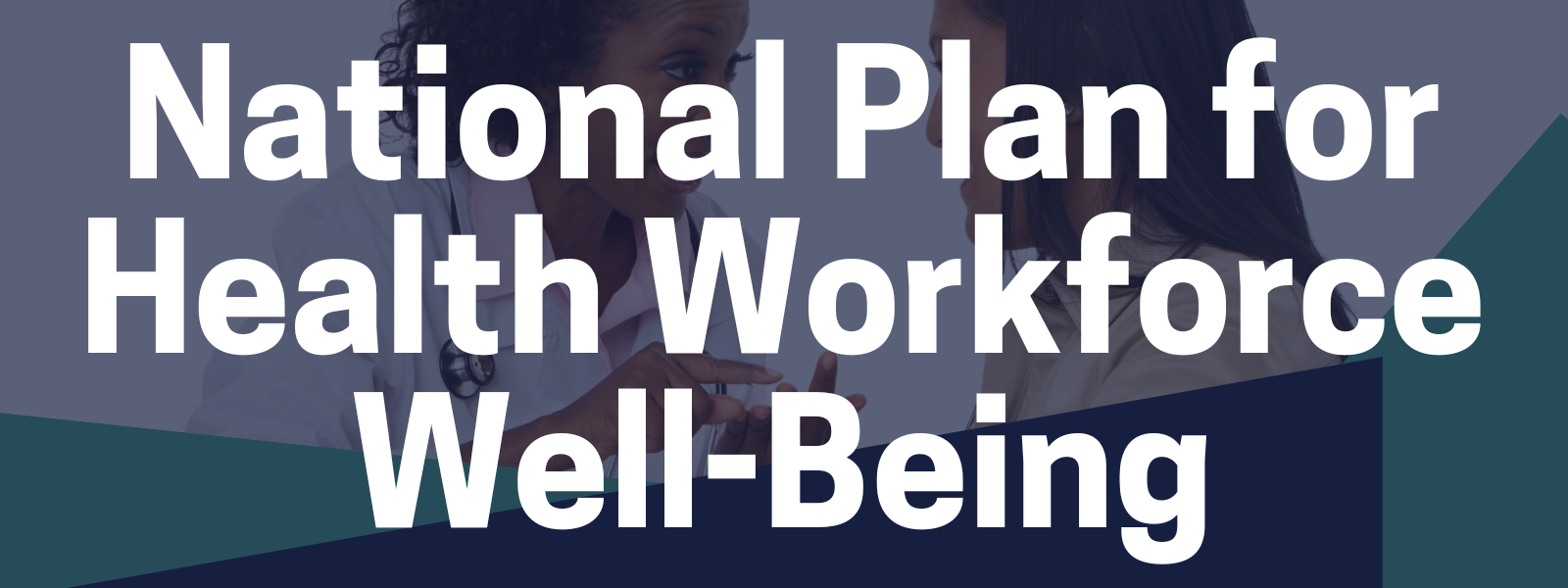

Action Collaborative on Clinician Well-Being and Resilience
Clinician well-being is essential for safe, high-quality patient care.
Featured
Register for December hybrid event on Orienting AI Toward Health Workforce Well-Being
About the Program
The National Academy of Medicine’s Clinician Well-Being Collaborative is a network of leaders and representatives of many major health professional organizations and health systems across the United States. Since 2017, the Collaborative has convened, published, and shaped the national conversation to advance three goals:
|
Why Clinician Well-Being Matters
Clinicians of all kinds, across all specialties and care settings, are experiencing alarming rates of burnout. Burnout is a syndrome characterized by a high degree of emotional exhaustion and depersonalization (i.e., cynicism), and a low sense of personal accomplishment at work. Clinician burnout can have serious, wide-ranging consequences on individual clinicians and learners, health care organizations, and patient care.
On the other hand, clinician well-being supports improved patient-clinician relationships, a high-functioning care team, and an engaged and effective workforce. Supporting clinician well-being requires sustained attention and action at organizational, state, and national levels, as well as investment in research and information-sharing to advance evidence-based solutions.
Everyone has a role to play in improving clinician well-being. The NAM works with partners nationwide to implement the National Plan for Health Workforce Well-Being, which provides guidance and next steps for leaders in health care and public health, educational institutions for health professional, policymakers, health IT companies, payers, regulators, associations, and others involved to cultivate a health system to support care providers and optimize their well-being.
The Clinician Well-Being Collaborative is proud to have contributed to the movement to address burnout by publishing a National Plan for Health Workforce Well-Being in October 2022. On the Plan’s one-year anniversary, the Collaborative opened the Change Maker Campaign to advance the National Plan and spark a national movement to support health workforce well-being. The Clinician Well-Being Collaborative will continue to identify evidence-based strategies to improve clinician well-being at both the individual and systems levels, including through convening, publishing, and shaping the national conversation.
Program Highlights
Staff
Anh Tran, Director
Farida Ahmed, Associate Program Officer
Bram Bond, Program Specialist
Samantha Phillips, Communications Officer
Collaborative Leadership
Victor Dzau, Co-Chair
Pamela Cipriano, Co-Chair
Darrell Kirch, Co-Chair
Vivek Murthy, Co-Chair
Thomas Nasca, Co-Chair
Sponsors

If you or a loved one is feeling distressed, the National Suicide Prevention Lifeline provides free and confidential emotional support 24 hours a day, 7 days a week.
Call or text the National Suicide Prevention Lifeline at 988.
Questions? Contact us at [email protected].



